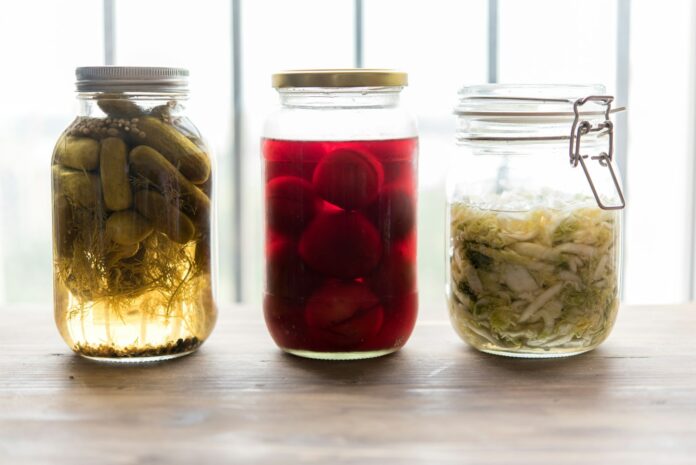Sauerkraut is a highly nutritious, probiotic-rich food with numerous health benefits. Packed with fiber and beneficial bacteria, it improves digestion, prevents bloating, and promotes overall gut health. Additionally, sauerkraut contains essential vitamins like vitamin C, vitamin K2, and potassium, which support cholesterol regulation and heart health. Below are some creative recipes and tips to include this gut-friendly superfood in your diet.
Why Sauerkraut is a Probiotic Powerhouse
The fermentation process of sauerkraut creates an environment rich in lactic acid bacteria, the probiotics responsible for its gut-healing properties. These probiotics aid in:
- Digestive health by enhancing nutrient absorption.
- Reducing inflammation in the gut.
- Supporting a healthy immune system.
Cabbage: The Star of Sauerkraut
Health Benefits of Cabbage
Cabbage is the foundation of sauerkraut and is packed with essential nutrients, including:
- Vitamin C for immune support.
- Vitamin K2 for bone health.
- Potassium to regulate blood pressure.
How Fermentation Works
The natural sugars in cabbage interact with beneficial bacteria to produce lactic acid, which:
- Sanitizes the cabbage.
- Shields the gut from harmful microbes.
To maximize benefits, start with small servings (about one tablespoon daily) and gradually increase your intake as your body adjusts.
Carrots: A Sweet and Nutritious Twist
Adding Carrots to Sauerkraut
Carrots are rich in fiber, vitamin C, and folate, making them an excellent addition to sauerkraut. Here’s how to make a carrot-infused sauerkraut:
- Shred cabbage and carrots.
- Add a small amount of salt and mix well.
- Pack the mixture into a jar, ensuring it’s fully submerged in brine.
Pro Tip
Use a fermentation weight or a cabbage leaf to keep the vegetables submerged. Avoid pasteurized store-bought sauerkraut as it lacks live probiotics.
Broccoli: A Crunchy Addition to Gut Health
Broccoli is an excellent addition to sauerkraut recipes. It provides:
- Sulforaphane, a compound with anti-cancer properties.
- High fiber for better digestion.
To prepare:
- Chop broccoli into bite-size pieces.
- Add to shredded cabbage and brine for fermentation.
- Let it ferment for 2-3 weeks for maximum flavor.
Tomatoes: A Flavorful Boost to Sauerkraut
Tomatoes bring additional fiber, vitamin C, and antioxidants to sauerkraut. To include them:
- Slice fresh tomatoes and mix with shredded cabbage.
- Add to your sauerkraut jar for a tangy, rich flavor.
“Elevate your gut health by combining the power of sauerkraut with the vibrant nutrients of tomatoes!”
Tomatoes also add an appealing visual element and a savory note to your recipes.
Garlic: A Natural Antifungal
Garlic is a potent addition to sauerkraut due to its:
- Antifungal properties, which keep yeast in check.
- Ability to enhance digestion by promoting stomach juice secretion.
Simply crush a few garlic cloves and add them to your sauerkraut jar for an extra health boost.
Ginger: Adding Zest to Your Sauerkraut
Ginger provides:
- Anti-inflammatory benefits.
- A unique flavor profile to sauerkraut.
To make ginger-infused sauerkraut:
- Grate fresh ginger and mix it with shredded cabbage.
- Ferment the mixture in a clean jar for 2-3 weeks.
Ginger not only adds zing but also supports digestion and gut health.
Parsley: A Fresh and Flavorful Finish
Parsley is a nutrient-dense herb rich in:
- Vitamin C for immunity.
- Natural enzymes for better digestion.
To use parsley:
- Add fresh parsley leaves to your sauerkraut once fermentation is complete.
- Store it in the refrigerator to preserve the herb’s vibrant flavor.
Buy Myprotein Products to Complement Gut Health
Support your gut health journey with Myprotein supplements. Their range of high-quality probiotics and vitamins perfectly complements a sauerkraut-rich diet.
Lifestyle Home offers more tips for a healthier lifestyle. Visit Lifestyle Home to explore more ways to improve your well-being!

